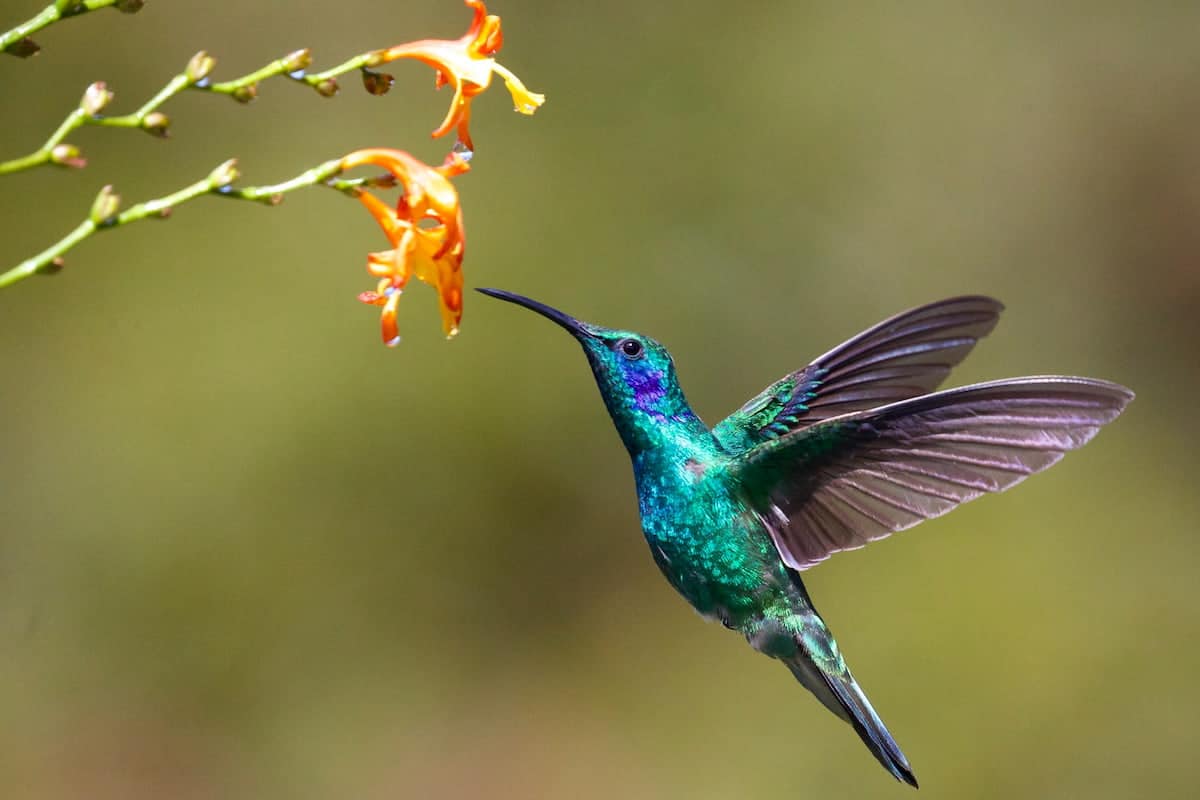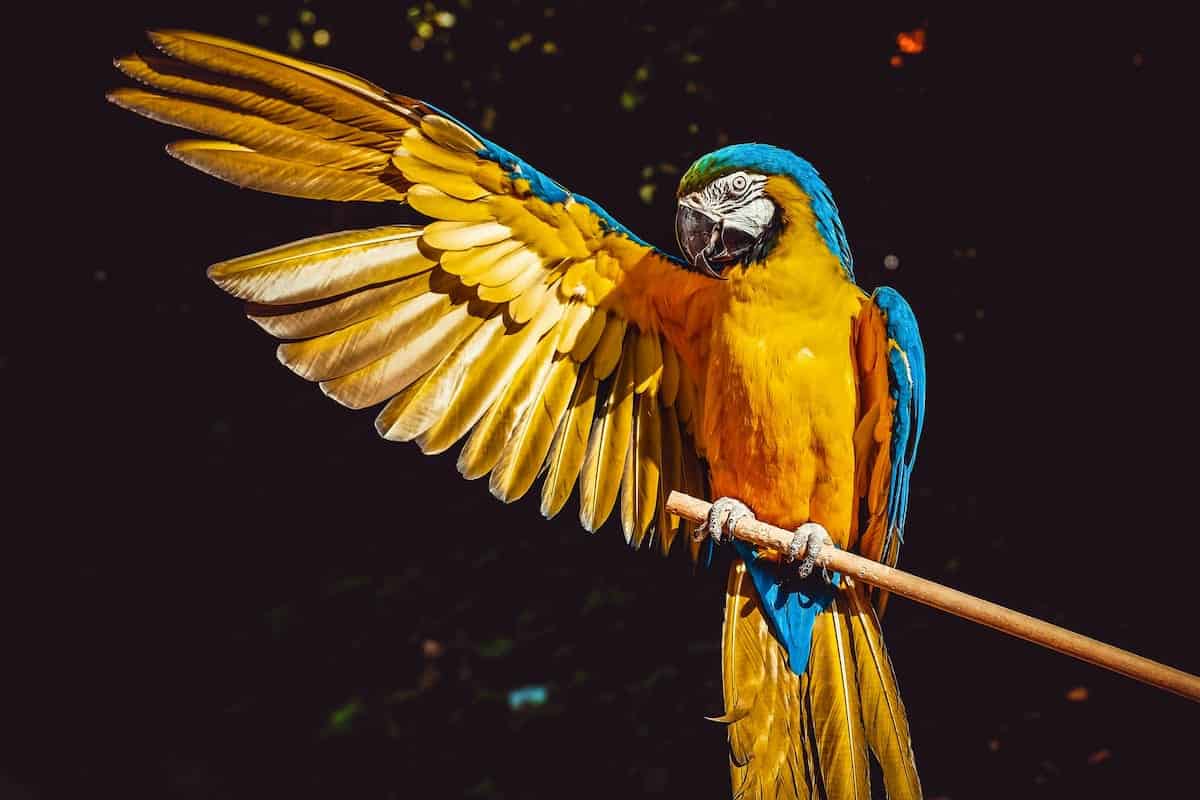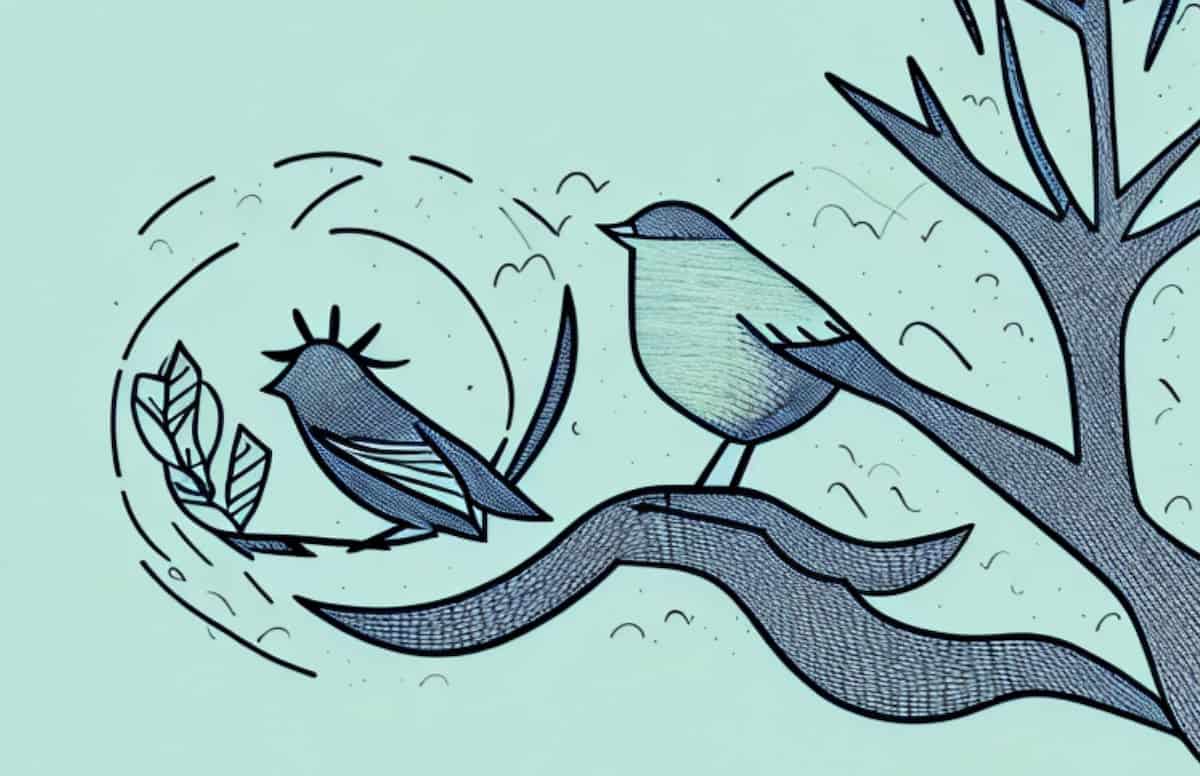When you think of a hummingbird, the last thing that probably comes to mind is sleep. They are one of the most active birds on the planet, but just the same as everything else, they need to make up for it with rest.
Amazingly, hummingbirds usually sleep between 8 to 16 hours per day, but their typical sleep is much different than you might think.
Find out more about hummingbirds and how much they sleep every day in this article.
How Long Do Hummingbirds Sleep?
Hummingbird sleep is interesting to say the least, as they sleep more heavily than most other species of birds in the world. Their rapid, continuous activity during waking hours causes them to burn calories at an extremely high rate.
They’re able to maintain this active state by feeding continuously on nectar and various tiny insects, but at the end of the day, there’s only so much that a steady diet can do and you eventually need rest.
That’s why hummingbirds sleep for up to 16 hours a day, and usually never get less than 8 hours in a single night. If they got any less, they’d put themselves at a huge risk. Keep reading to find out why.
When Do Hummingbirds Sleep?
Hummingbirds, the same as many animals, are most active during the daylight hours, and sleep while the sun is down. This is due to food availability and safety from potential predators.
A hummingbird’s primary source of food is nectar from flowers, which often open while the sun is up. Their other source of food — insects — are also usually active during the day, so once the sun goes down, it’s time to go to sleep for the hummingbirds.
If you have a porch light on after the sun goes down, a hummingbird might stay up a little bit later, but their bodies know when to rest, so they usually don’t stay out all night as humans might.
How Do Hummingbirds Sleep?
Hummingbirds are known for their tremendous level of activity. Most animals are able to enjoy a moment or two of inactivity, but the hummingbird is a different animal entirely.
From the moment they wake up to the moment they begin to sleep, hummingbirds are active. As you know, this has to be balanced out with rest so that the hummingbird can maintain a healthy life, and as Mother Nature would have it, hummingbirds are also known for their unique type of sleep.
Hummingbirds’ sleep is quite different from humans’ sleep (and most other animals for that matter). Every night, the hummingbird goes into an extremely deep state of rest known as “torpor.”
This torpid state is similar to other animals when they go into hibernation. Their heart rate, metabolism, and body temperature all drop significantly in order to conserve energy. The biggest difference is that hummingbirds do this every single night.
Body temperature is very important to hummingbirds, so they fluff up what few feathers they have at night in order to conserve just enough body heat to maintain normal function while they sleep.
Want to learn more about How Do Hummingbirds Sleep click the button below
Why Do Hummingbirds Go Into Torpor Every Night?
Despite it being a state of deep rest, torpor takes time for the hummingbird to recover from. Imagine waking up early in the morning and feeling completely disoriented for up to half an hour before returning to feeling normal.
This is the closest comparison we can make between humans’ and hummingbirds’ sleep.
So you might be wondering why hummingbirds go into torpor every night if it’s bewildering for them the next morning.
The simple answer is that they have to in order to survive. Despite being known as an incredibly active bird species, their source of fame is also what makes them vulnerable at night.
Hummingbirds have to enter a torpid state in order to survive their high metabolism. When they’re awake, they’re able to constantly feed it what it requires, but (obviously) they can’t feed while they’re asleep, so torpor comes into play.
Going into torpor each night also helps the hummingbird regulate its body temperature. This also helps them survive the winter months.
Do Hummingbirds Sleep Alone?
Many species of bird sleep in groups as a means for security, but the hummingbird is quite different.
It’s extremely uncommon to find hummingbirds sleeping in groups unless it’s a mother accompanying her chicks. They often prefer a solitary space where they can bed down and enter into torpor without the possible annoyance or disruption from other hummingbirds.
Due to the space they allow themselves in a nest or resting spot, hummingbirds often simply don’t have room for other hummingbirds.
Do Hummingbirds Sleep During the Winter?
As you know, hummingbirds go into torpor in order to help regulate their body temperature throughout the night, and this also helps them through cold weather. Amazingly, hummingbirds may remain active even in sub-freezing temperatures. This may be due to their high level of activity keeping them warm, or going into torpor every night. Research is inconclusive.
However, most hummingbirds in North America migrate south during the winter in search of warmer temperatures. This doesn’t mean that they can’t survive through the cold winter months, though.
Hummingbirds will sometimes sleep much more during the winter months due to food scarcity. They need food in order to have the energy they need to function, and when everything is frozen and dormant, hummingbirds often make up for it with extra sleep.
Conclusion
In this article, you’ve learned that hummingbirds need to go into a torpid state each night to cope with their extremely high metabolism. Torpor puts them in a hibernation-like state, and they fluff their feathers to conserve what little body heat is left in order to maintain proper bodily functionin





